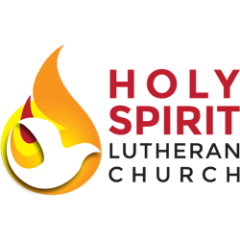Let’s talk about confession. It’s that thing we do at the very beginning of our service. The way that we Lutherans engage it is most often done in group settings. Sometimes, it even comes with beautifully poetic language. It comes with some time of silence where we lay our soul bare collectively yet individually to God. In other traditions, they approach it differently. Some don’t engage in confession at all. Others, like the catholic church, have a practice of individual confession between you and a priest.
Every single approach has its benefits. Every single approach has its deficits. Confession, at its best, allows us insight into our inner lives. Those pieces of us that lurk in the shadows have a habit of cropping up and making themselves known in that time. We may even end up doing the very thing that we hate. Or perhaps it shows up for you as self-loathing or shame when you encounter those pieces of yourself, you’d rather keep in the dark.
I’m curious if the ways we have approached confession don’t leave room for it to do the work it intends to do in us. Even if we actively engage in this practice, it can be simple enough to view confession as a surgical procedure. Isolate the sin, acknowledge it, and let the good doctor remove it. Voila! Back to holy. But holy smokes, if that’s how you’ve approached confession, I’m so sorry. That is a total disservice to you. If that’s how it goes, you will never satisfy the confessional. All righteousness will never be fulfilled.
We need to introduce some new vocabulary into our practice. Perhaps it should be confession and integration or confession and healing. Because the real work of confession is not to isolate and remove. The real work of confession is to see ourselves clearly and engage in active healing. Some even equate sin with this idea of the false self. Our false self is how we define ourselves outside of love, relationship, or divine union with God. After we have spent many years diligently building this separate self, with all of its labels and preoccupations, we are very attached to it. And why wouldn’t we be? It’s what we know and all we may know. To move beyond it can feel like losing or dying. But it can also feel like freedom and unconditional love.
I know it is easy to gloss over our first initial prayers on a Sunday morning. It can be easy to slip into them momentarily and right out without giving them a second thought. But you just might be missing an opportunity. An opportunity to see yourself as God sees you. All of you. All of the gnarled messed up
creations that we are. An opportunity to rest in ourselves so that we may rest in God. A God who is beyond tribal religious affiliations where some are ‘chosen’ and therefore ‘saved’ and others are ‘unchosen’ and therefore ‘damned.’ A God who is way beyond the ability of my little brain to comprehend and yet so intimately within me that this God lives between the subatomic particles of
stardust that make up my body; a God who passionately loves all of creation and infuses that creation with life and light; a God whose fiery love has consumed me before I could even comprehend loving myself; a God who is more me than me. I believe in a God who loves us in that way – a God beyond the rules.

